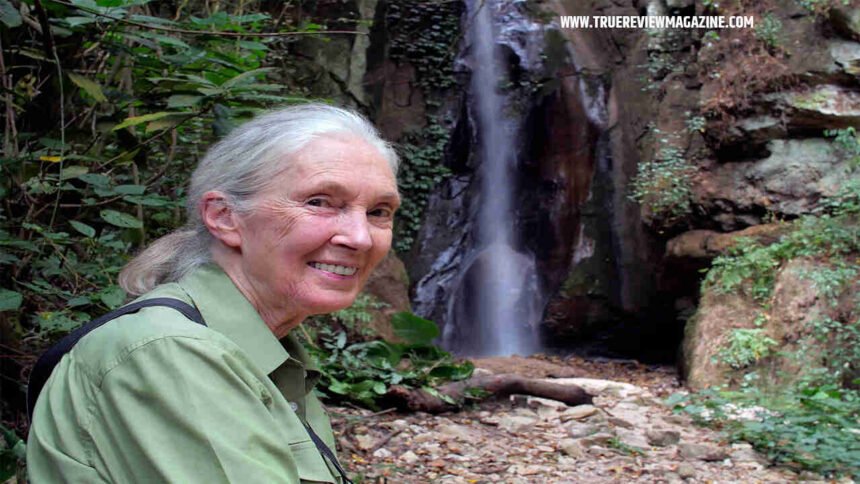Amidst the ongoing challenges faced by the natural world in its interaction with humanity, Dr. Jane Goodall remains a beacon of optimism for the future. Her inspiration springs from the attentive young audience gathered in Aspen—an emerging generation learning the significance of coexisting harmoniously with the environment.
Dr. Goodall recently delivered her message of hope in Aspen during a community youth lecture, orchestrated by the Aspen Center for Environmental Studies. This event marked her return to the Roaring Fork Valley after a two-decade hiatus. Despite her age of 89, Dr. Goodall engaged energetically with a crowd of around 500 people in the Harris Concert Hall. Notably, she focused on the children in the audience, affording them priority to witness her talk firsthand.
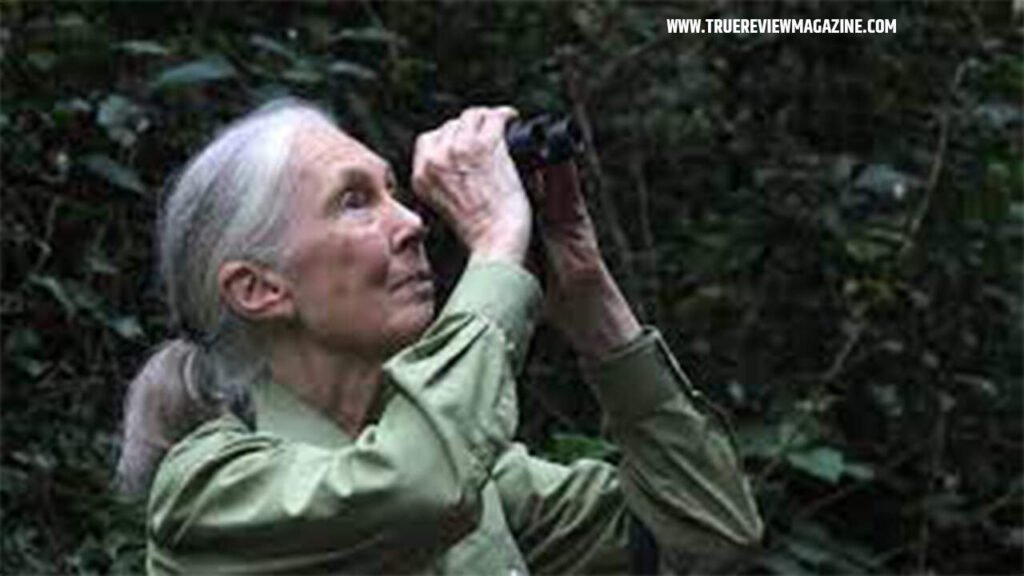
During her presentation, Dr. Goodall greeted the audience with a charming gesture, using her native “chimpanzee” tongue. She reminisced about her early years and how her love for reading nurtured her inquisitive nature. She even shared a lighthearted comment about her initial encounter with Edgar Rice Burroughs’ 1914 novel, “Tarzan of the Apes,” playfully objecting to Tarzan’s choice of spouse.
Dr. Goodall’s life journey, from her birth in London in 1934 to her pioneering work as an ethologist, conservationist, and activist, is widely recognized. She credited much of her early passion for wildlife and nature to her mother’s influence. However, she faced the challenges of pursuing her global exploration and animal studies during an era when such endeavors were deemed unconventional for girls.
A transformative moment occurred in 1960 when she ventured to Tanzania, guided by the eminent anthropologist Dr. Louis Leakey. Dr. Leakey employed her as his secretary and tasked her with studying Africa’s chimpanzees. In 1960, a groundbreaking discovery altered the course of science: Dr. Goodall observed chimpanzees using tools, specifically blades of grass to extract ants. This revelation shattered the prevailing belief that humans were the sole tool-making species on Earth.
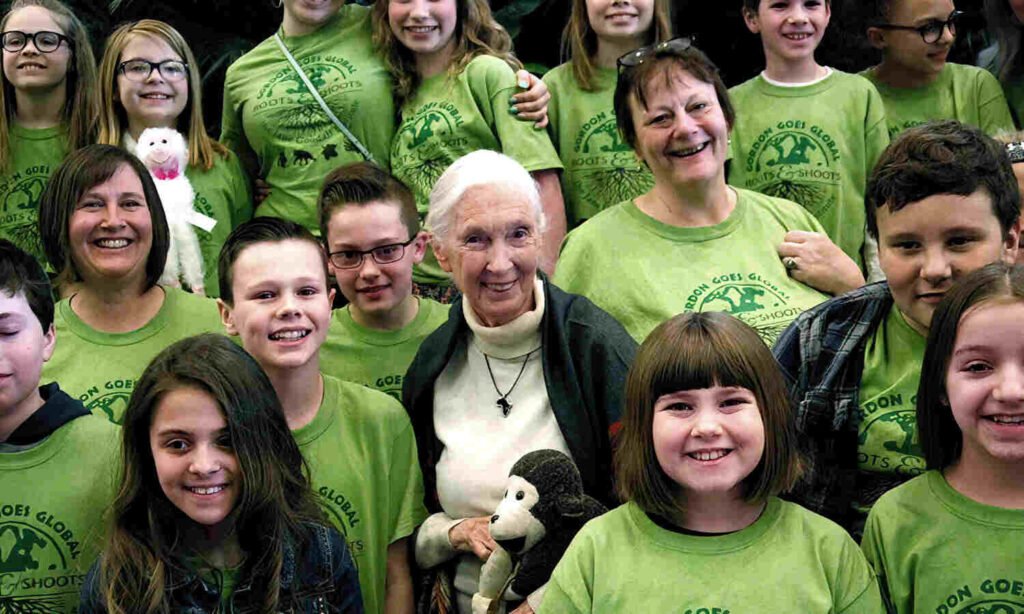
In 1977, Dr. Goodall’s impactful work led to the establishment of the Jane Goodall Institute. Since then, she has tirelessly journeyed the world, sharing her story and motivating others to contribute to the conservation of our natural world.
During her lecture, Dr. Goodall highlighted her transition from scientist to activist, driven by firsthand encounters with the detrimental consequences of deforestation and human actions on natural ecosystems. She recounted a disheartening experience from the late 1980s when she flew over Tanzania’s Gombe Stream National Park, where much of her groundbreaking research took place in the 1960s. The destruction of forests for agriculture and timber due to economic pressures deeply moved her.
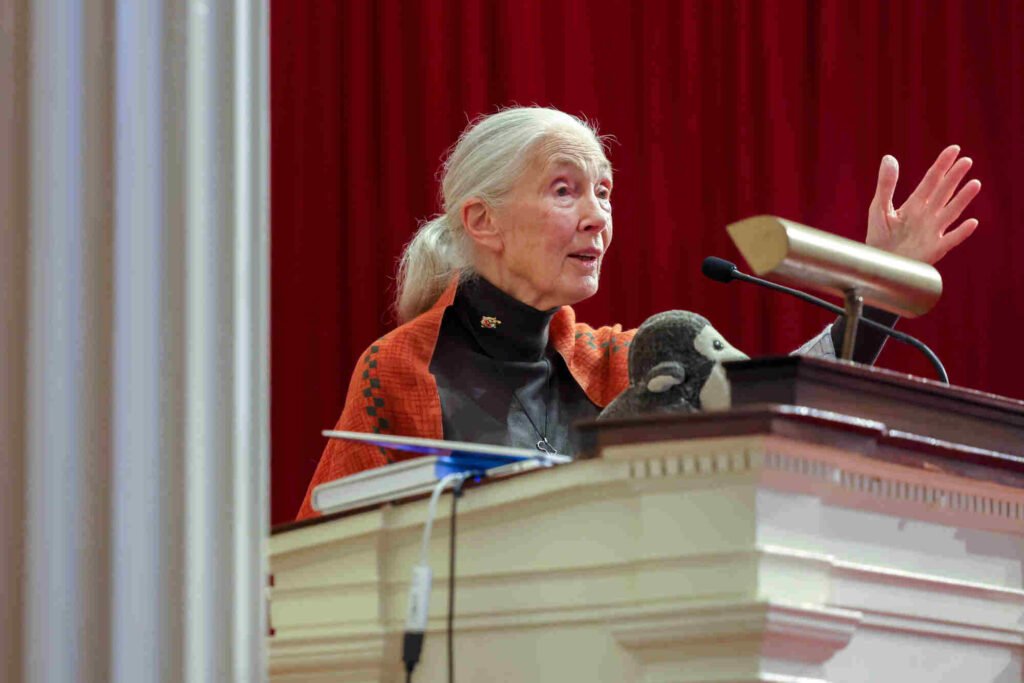
Dr. Goodall firmly believes that the youth of today can continue this mission. During her talk, she responded to a child’s question, acknowledging that a single person picking up a piece of trash may not have a substantial impact. However, when that individual inspires ten friends to do the same, and each of those ten influences ten more, a significant collective impact unfolds.
This philosophy underpins her “Roots & Shoots” organization, initiated in 1991 with a group of high school students. The organization empowers young people to instigate positive change within their communities, emphasizing that while saving the world might be an ambitious goal, meaningful contributions can be made within one’s own community.
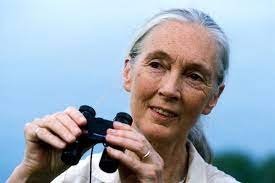
Dr. Goodall’s unwavering commitment to inspiring change and her tireless efforts to disseminate her message of hope remain steadfast as she continues her global travels. Her forthcoming engagements include speaking at Roaring Fork and Glenwood Springs high schools, with a specific focus on engaging and prioritizing students and youth.
All in all
Dr. Jane Goodall’s recent visit to Aspen served as a powerful reminder of the importance of environmental conservation and the role that the youth can play in shaping a more sustainable future. Her unwavering optimism and dedication to fostering a harmonious coexistence between humans and nature are truly inspirational.
Dr. Goodall’s life journey, from her early years filled with curiosity to her groundbreaking discoveries as a scientist and her subsequent transformation into an activist, offers valuable lessons for all generations. Her message emphasizes that while the challenges facing our planet may seem overwhelming, meaningful change can begin with small, collective actions within our own communities.
As Dr. Goodall continues to engage with young minds and share her message of hope, she sparks a fire of inspiration that has the potential to ignite a global movement for environmental stewardship. Her legacy serves as a testament to the profound impact that one individual can have on the world when fueled by passion and a commitment to positive change.
In the spirit of Dr. Goodall’s teachings, let us remember that we all have a role to play in preserving the natural world for future generations. By empowering our youth and fostering a sense of responsibility for our environment, we can collectively work towards a more sustainable and harmonious coexistence with nature.
Dr. Jane Goodall’s visit to Aspen leaves us not only with a message of hope but also with a call to action—to protect and nurture our planet, one small choice at a time.
Read also: https://truereviewmagazine.com/




